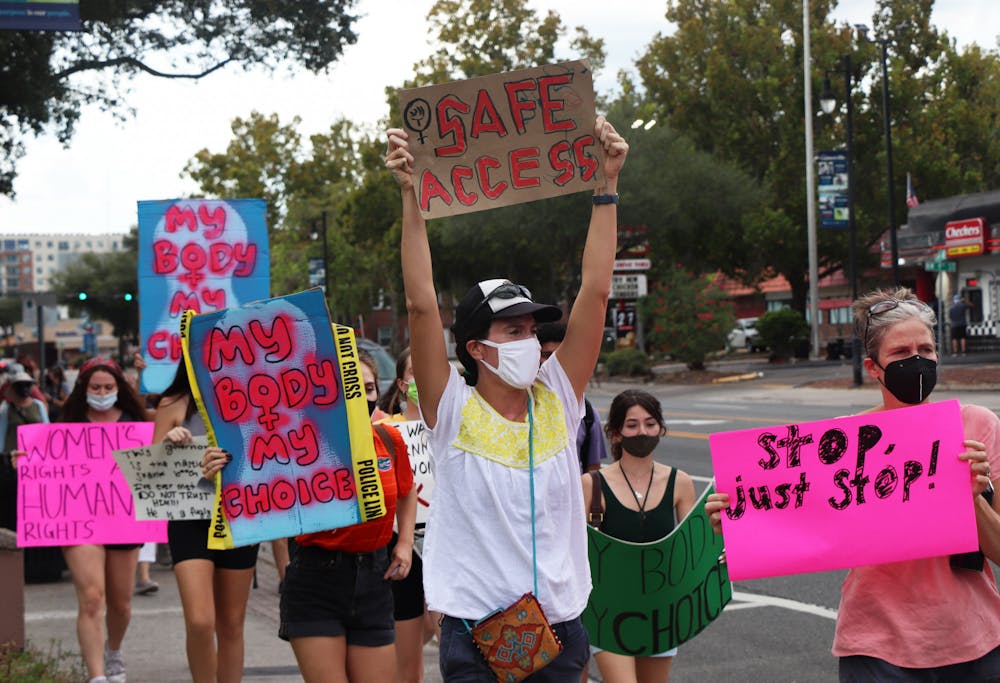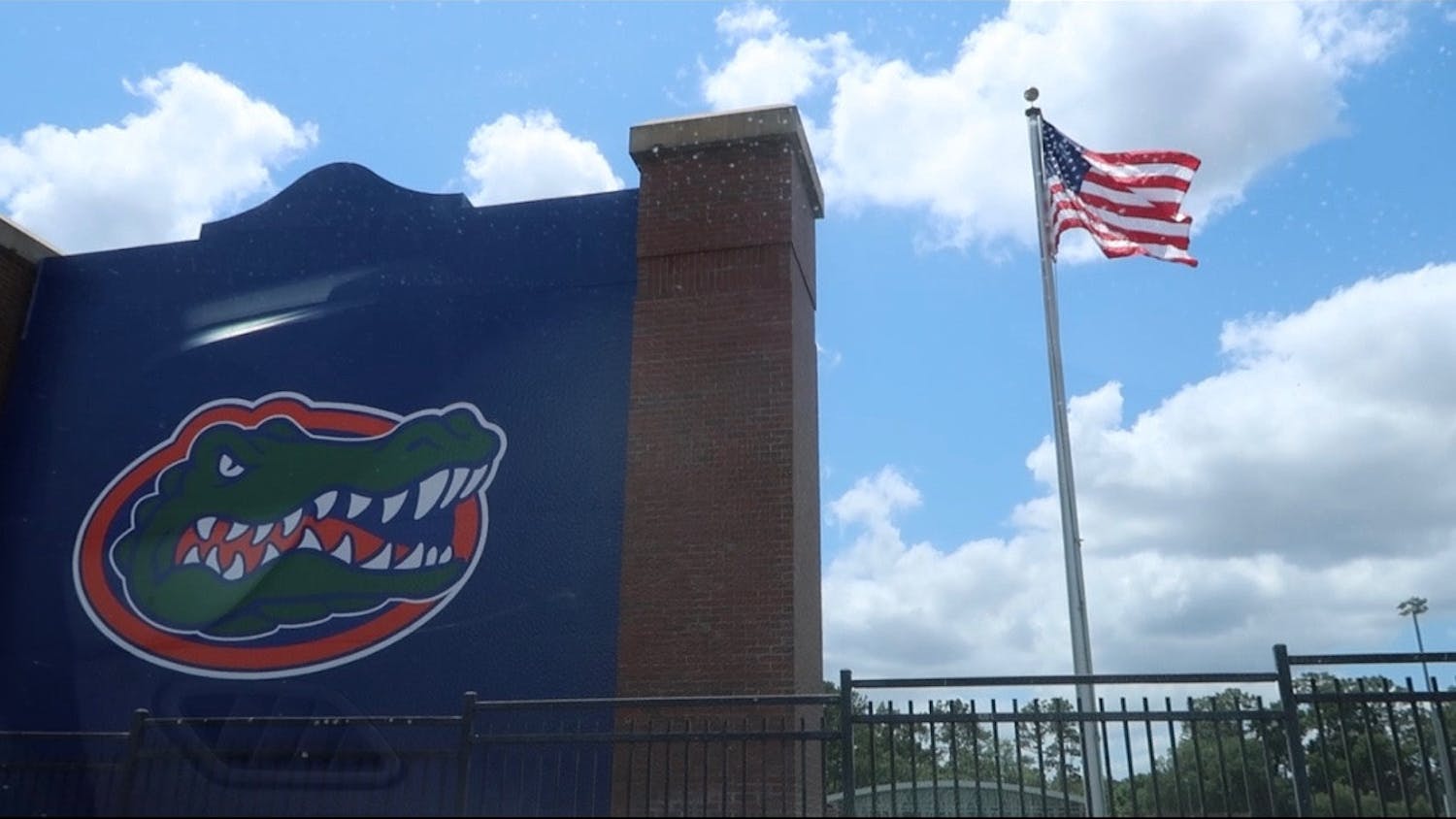A Florida judge announced plans to block a GOP-backed 15-week statewide abortion ban one day before it and other controversial conservative laws, like the “Don’t Say Gay Bill” and “Stop WOKE Act,” went into effect Friday.
Florida Judicial Circuit Court Judge John Cooper will sign a temporary statewide injunction blocking the new state law and maintaining Florida’s status as a haven for women in the Southeast seeking abortions.
Less than a week after the Supreme Court overturned Roe v. Wade, Cooper ruled the ban — which still granted exceptions for pregnancies threatening the mother’s or fetus’ life, but did not grant exceptions for rape or incest — violated state privacy protections. Florida’s constitution declares “every natural person has the right to be let alone and free from governmental intrusion into the person’s private life.”
The earliest Cooper could sign the injunction is Tuesday, communications and marketing director of Planned Parenthood of South, East and North Florida Christina Noce said. This would reinstate the existing 24-week ban, which would still be more gracious than Texas and Mississippi’s trigger laws.
The state legislature will challenge Cooper’s decision in the District Court of Appeals and try slowly eliminating the right to an abortion through provisions like a 14-week abortion ban or a fetal ultrasound mandate, UF Levin College of Law professor Danaya Wright said.
“They chip the right away to the point where it's really not meaningful for a lot of people,” she said. “No matter how much the Supreme Court of Florida whittles away at the doctrine, I don't think they can legitimately say abortion is not included as a matter of privacy.”
With much of the South settling into an abortion desert, Planned Parenthood and the American Civil Liberties Union are prepared to contest the 15-week ban up to the Florida Supreme Court to preserve women’s right to an abortion.
“This is far from over,” Noce said. “We’re just going to fight like hell in the state to do everything we can to ensure that we have access to abortion in Florida.”
Florida has already seen an increase in patients from Alabama, Louisiana and especially Texas, and Noce expects the number to continue to surge throughout the summer. The Center for Reproductive Rights created a map predicting Florida will be the only East Coast state south of Virginia where abortions will still be protected. It categorizes Georgia and the Carolinas as states “hostile” toward abortions, while Alabama has banned the procedure except in cases of life endangerment.
Even if a woman has the resources to trek out of state for the procedure, it is difficult to find an appointment in the South and most clinics still offering care are very overrun, Noce said. Planned Parenthood hired additional physicians, she said, even flying out-of-state providers to Florida to accommodate patients seeking an abortion before the ban was enacted. Clinics also extended hours, added appointments and prioritized patients near or beyond 15 weeks of pregnancy, Noce said.
It is unclear how the influx of patients have affected Gainesville abortion clinics, though. After multiple phone calls, emails and a visit to Bread and Roses Women’s Health Center in Gainesville, the clinic declined to respond to The Alligator’s request for comment.
In 2021, 831 procedures were performed in Alachua County, and Florida’s 55 clinics provided more than 79,000 women abortions, according to a Florida Agency for Health Care Administration report.
About 4,800 of those women resided outside Florida. Cooper’s ruling may attract even more out-of-state women seeking abortions this year.
“This is a win for privacy, this is a win for women and this is a win for bodily autonomy,” Rep. Yvonne Hayes Hinson, D-Gainesville, said in a press release, speaking for not only her constituents but all women in the South.
Republicans will continue to fight for anti-abortion legislation, she said.
The state anticipated Cooper’s ruling and will ask the Florida Supreme Court to reverse the 1989 Florida Supreme Court case, the governor’s deputy press secretary, Bryan Griffin, wrote in an email. DeSantis’ office rejected the court’s interpretation of Florida’s right to privacy in the precedent. The ruling states unequivocally that abortion is protected under the privacy prong of the Florida Constitution, even “if the United States Supreme Court were to subsequently recede from Roe v. Wade.”
Wright said she would be surprised if the appeals court removes Cooper’s injunction upon the state’s request, but once it reaches the Florida Supreme Court — which would likely take well over a year — the 15-week ban would be upheld, she predicted; it may be an infringement of privacy, she said, but it is not an outright denial.
If the state legislature continues to erode abortion protections, Noce said the most vulnerable women will continue to be disproportionately affected: survivors of rape or incest, people of color, low-income women and youths who must stand before a judge for permission to access abortion care.
“The last thing they're thinking about is becoming pregnant or going to a doctor's office,” Noce said. “Those are the people that typically seek abortion after 15 weeks.”
Contact Carissa Allen at callen@alligator.org. Follow her on Twitter @carissaallenn.
Carissa Allen is a third-year journalism and political science double major. She is excited to continue her work on the Metro desk this semester as the East Gainesville Reporter. In her free time, you can find her scuba diving, working out or listening to a podcast.





